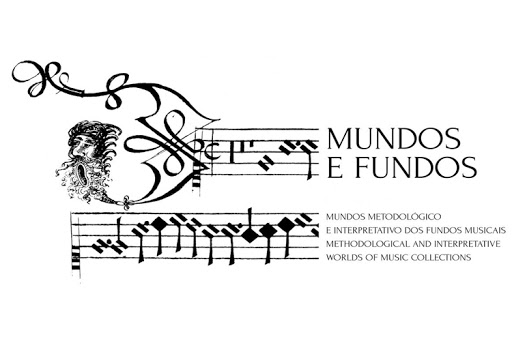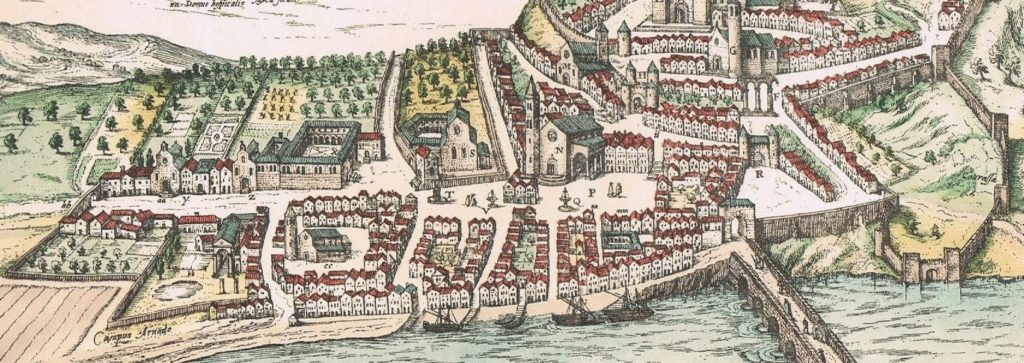« More than an ensemble, the CAPELLA SANCTÆ CRUCIS is a project to rescue a rich, little-known musical heritage. Each concert is a new discovery of veritable cathedrals of sound lying dormant in the Portuguese archives. Each programme is a new page in the History of Music. »

Each programme of the CAPELLA SANCTÆ CRUCIS is the result of a long process of research, study and transcriptions of mostly unpublished sources. This research is part of a vast multidisciplinary project developed at the Centre for Classical and Humanistic Studies (CECH) at the University of Coimbra in Portugal around the musical heritage preserved in this institution – the University of Coimbra’s Mundos e Fundos project.
The musical sources interpreted come from the General Library of the University of Coimbra, which is responsible for one of the most important musical collections in Europe.
The impressive collection, made up of dozens of manuscripts and printed documents, paves the way for the rediscovery of the flourishing monastic institution of Santa Cruz de Coimbra. This institution, mother house of the Order of Canons Regular of Saint Augustine and an important centre of political and cultural influence since the founding of the Kingdom of Portugal in the twelfth century, developed an intense musical activity, particularly in the sixteenth and seventeenth centuries.
The CAPELLA SANCTÆ CRUCIS was originally founded as a veritable musical laboratory as part of Tiago Simas Freire’s doctoral project (2012-2017), under an international cotutelle arrangement between the University of Coimbra and the CNSMD de Lyon in partnership with the University of Lyon. After obtaining his doctorate in Music and Musicology, Tiago Simas Freire is continuing and intensifying his research with rigour and innovation as an active collaborating researcher at the University of Coimbra.
The Capella Sanctae Crucis project opens up new horizons in the history of music, sharing with the public a forgotten heritage that evokes freedom, beauty and openness…

THE MONASTERY OF SANTA CRUZ
In the sixteenth and seventeenth centuries, one of the main artistic and cultural centres of the Kingdom of Portugal was the city of Coimbra, and in particular its monastery known as Santa Cruz, one of the most highly developed musical centres in Europe.
This Mother House of the Congregation of the Order of the Rule of Saint Augustine has developed an extraordinary musical tradition within its humanist activities, its ecclesiastical solemnities and its sacred-profane ceremonies, as well as in its demand for excellence in teaching. In fact, one of the richest collections of manuscript music from the sixteenth and seventeenth centuries in Europe, preserved to the present day, very probably belonged to the monastery of Santa Cruz de Coimbra.
Swaying between partnership and rivalry with the city’s university, the mother house of the Canons of the Rule of Saint Augustine seems to have been a national centre of political and cultural influence of excellent musical quality practically since its foundation.
LE XVIIe SIÈCLE MUSICAL PORTUGAIS
Sandwiched between the ‘Golden Age’ of Lusitanian polyphony and an eighteenth century heavily influenced by Italy, the decades of the Portuguese seicento have been little studied by scholars, some of whom have even read them in a derogatory light.
One of the main objects of study for the CAPELLA SANCTÆ CRUCIS is a collection of virtually unpublished 17th-century musical manuscripts held in the General Library of the University of Coimbra.
These 16 cartapácios – as they were known at the time – are an extraordinary testimony to the musical activity of an ecclesiastical institution, most likely the Monastery of Santa Cruz in Coimbra. These manuscripts offer a wide variety of sacred polyphony (responsos, vilancicos, negrillos, chansonetas, ensaladas; and other pieces intended for the liturgical space), secular music (tonos, ensaladas, romances) as well as apparently instrumental music (concertados, fugas, lições, etc.) and a few extracts, probably copied, from works on musical theory.